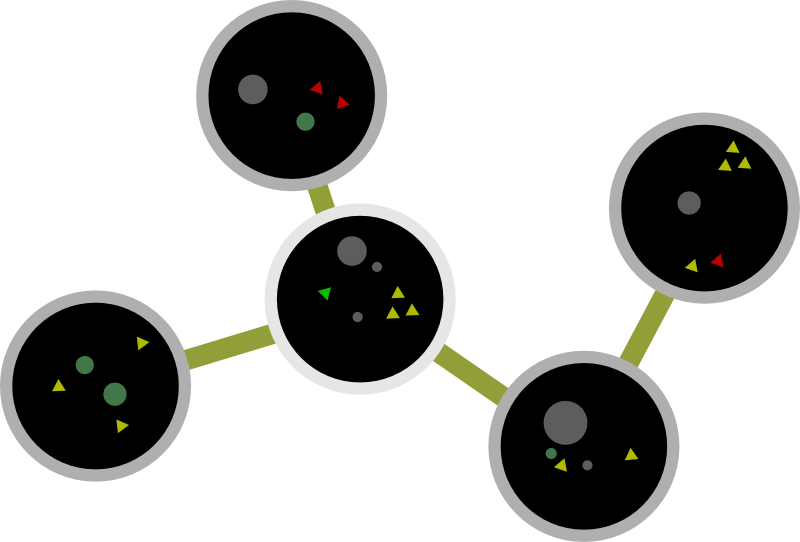Sadly, Endless Sky is a bit of a disappointment: it does a good job of recreating the basic gameplay but even after several hours of play, I have no idea what the factions or conflicts in the game might be. The ships look the same, the user interface is just a bit awkward, and there's very little to do. It's a generic EV-like that ticks all the technical boxes but fails to leave a strong impression. Another modern EV clone, Naev, suffers from similar problems: the game is a collection of cool features rather than a game with an actual design.
Still, there is something to the basic gameplay of Escape Velocity. You might think that 3D space games would be obviously superior, but straightforward top-down flight and combat is its own enjoyable genre. Just look at the success of Sunless Sea, which is basically a slowed-down steampunk Escape Velocity.

What would a worthy successor to EV look like? Beyond the engine itself, the game would need a strong setting and graphical direction. (Which is what Sunless Sea has in spades.) You could perhaps build this game on top of Endless Sky, retaining the engine but completely replacing the content. ES is open-source, so this is absolutely doable.
This gets us another instalment in the series, but doesn't really advance anything in terms of gameplay. The obvious and oft-discussed next step would be to make the game multiplayer, but as I understand it, there's some fundamental problems with that. The space combat is high-paced and precise, and even a modest amount of lag would quite ruin it. MMOs generally get away with "realtime" combat by making weapons and abilities auto-aim, which wouldn't work for EV.
So let's stay with single-player. Another interesting way of extending the game would be to make it much more of a simulation. In current implementations, planets are pretty static unless changed through missions, and ships are ephemeral, randomly generated for a star system and discarded when you jump out. Instead, the game could keep track of each ship in-universe as it flies around, jumps between systems, trades, and fights. With a modest star map of maybe 50 systems, this would amount to a few hundred ships in flight at any time, plus a few hundred more currently landed on planets. A modern CPU could probably just do this all in real-time without needing any shortcuts or simplifications, running all 50 star systems in parallel even as it only shows the player one of them.

Goods prices could be derived from actual trade, and you could technically have a relationship with each ship in the game. Planetary governments and other organizations would also be simulated at some level, keeping track of their state and generating missions to be fulfilled. Pirates out of control? Governments post more bounties, and goods prices go up as trade routes are interrupted. War going badly for a faction? They start posting high-risk high-reward mercenary missions.
Another related direction would be to transition the game from a RPG to a strategy game over time: allow players to build space stations, explore and colonize planets, and carve out their own empire.
Or instead, the game could go into more detail, giving you way more options to modify and fine-tune your ship and hire and interact with crew and passengers.
There's plenty of places to go: a worthy successor to Escape Velocity may yet arrive, whether it comes from an open-source project or from some new imagining yet to come.
